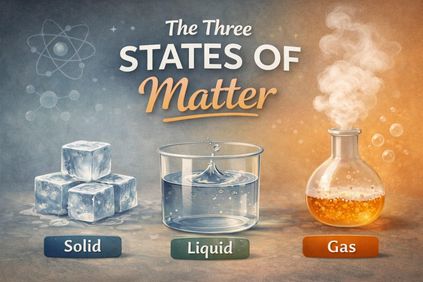7 min read
Three states of Matter: Solid, Liquid and Gas - GCSE Chemistry guide
There are three main states of matter: solid, liquid and gas. This article explores how particles behave in each state, how substances change between them, and why these ideas are useful for understanding real-life science. It also briefly explores other states, such as plasma and Bose–Einstein condensates, to show how much more there is to discover about matter.
28 Dec, 2025
























